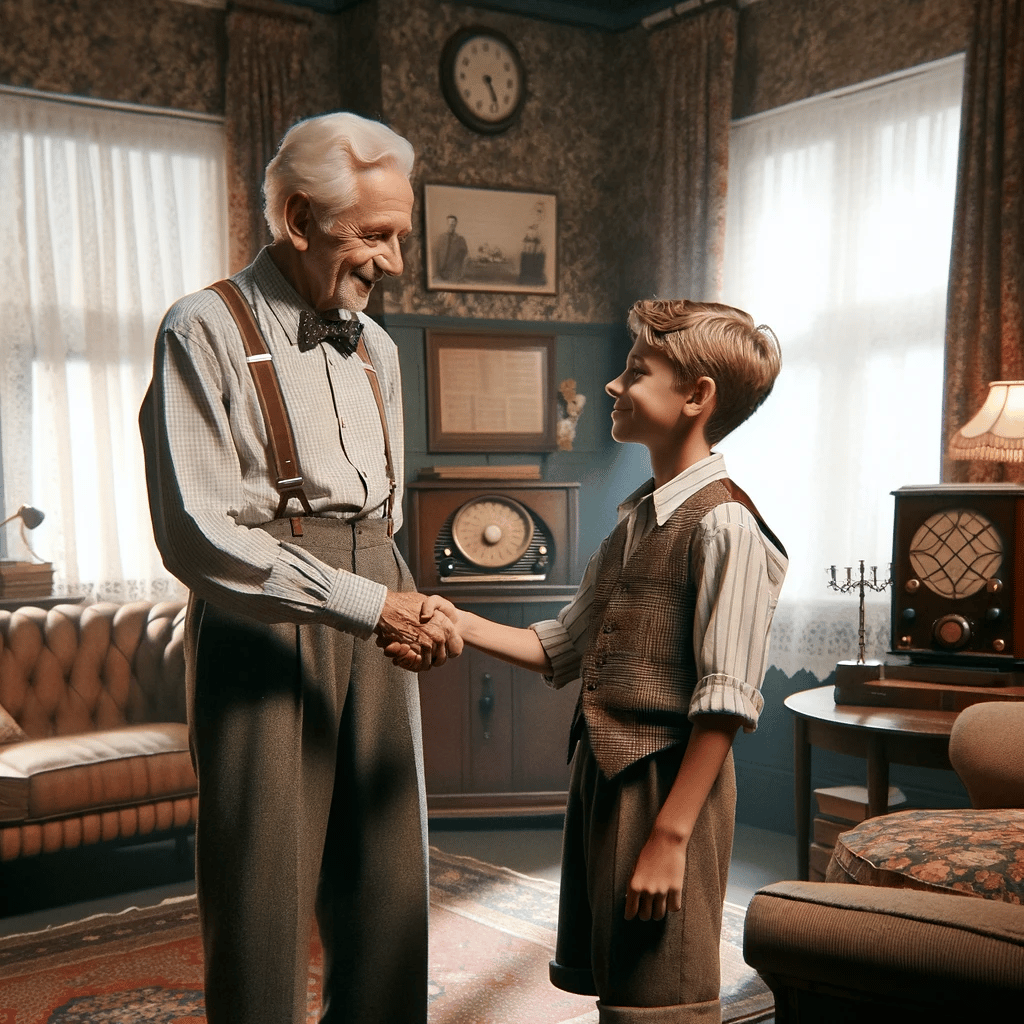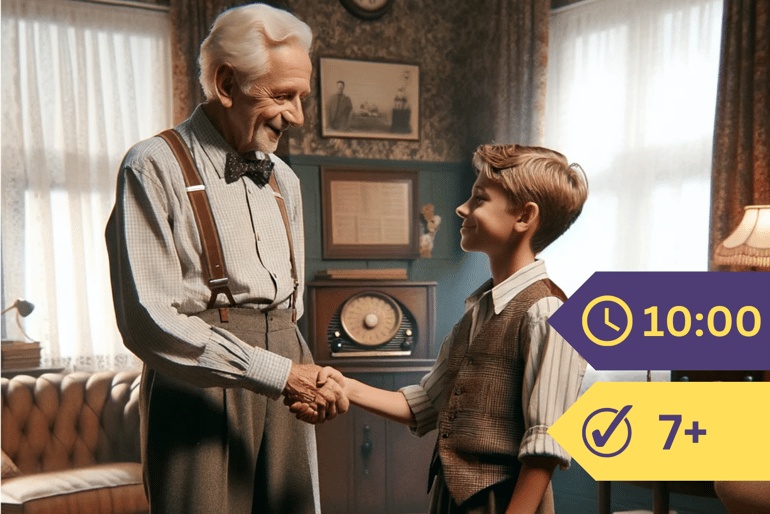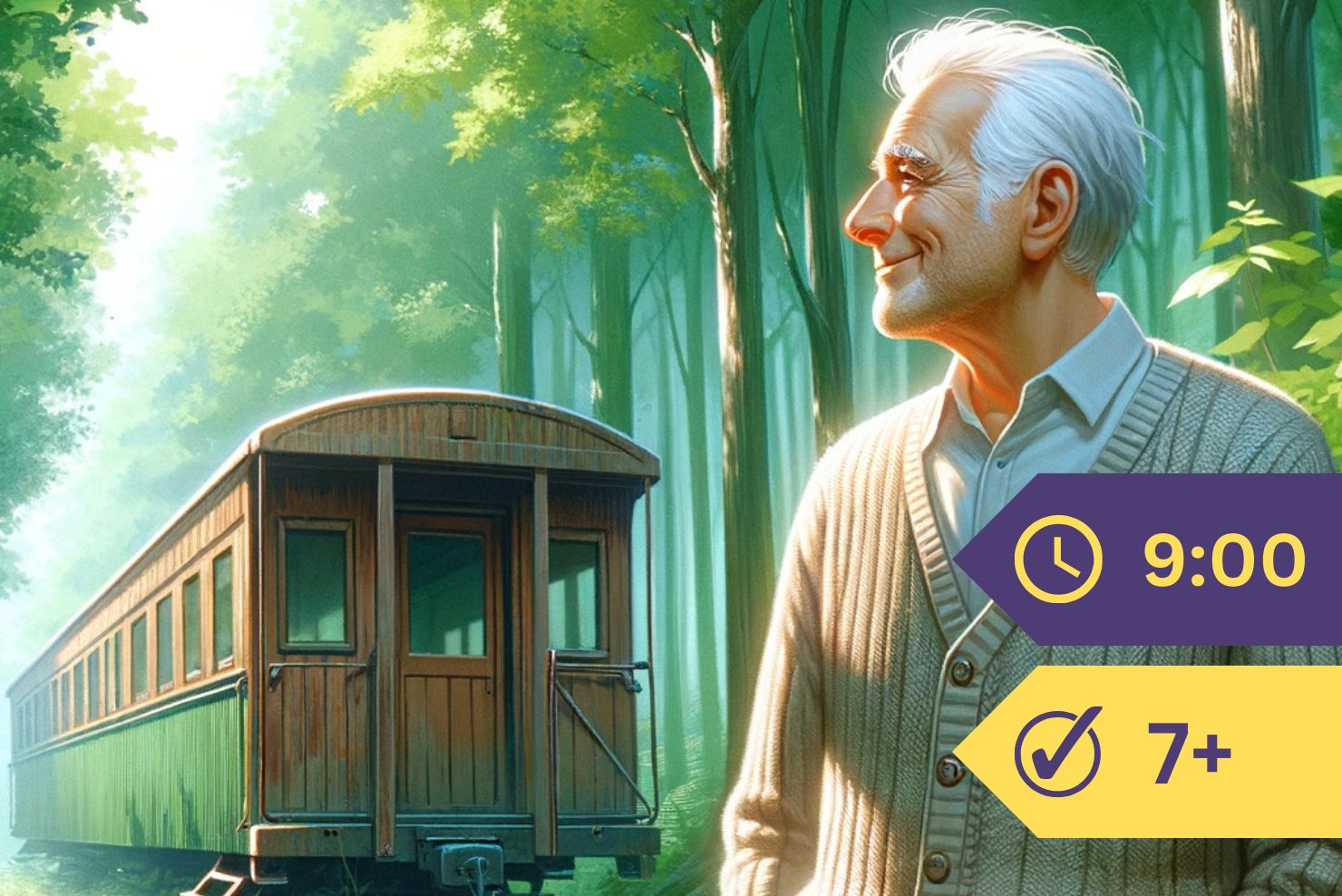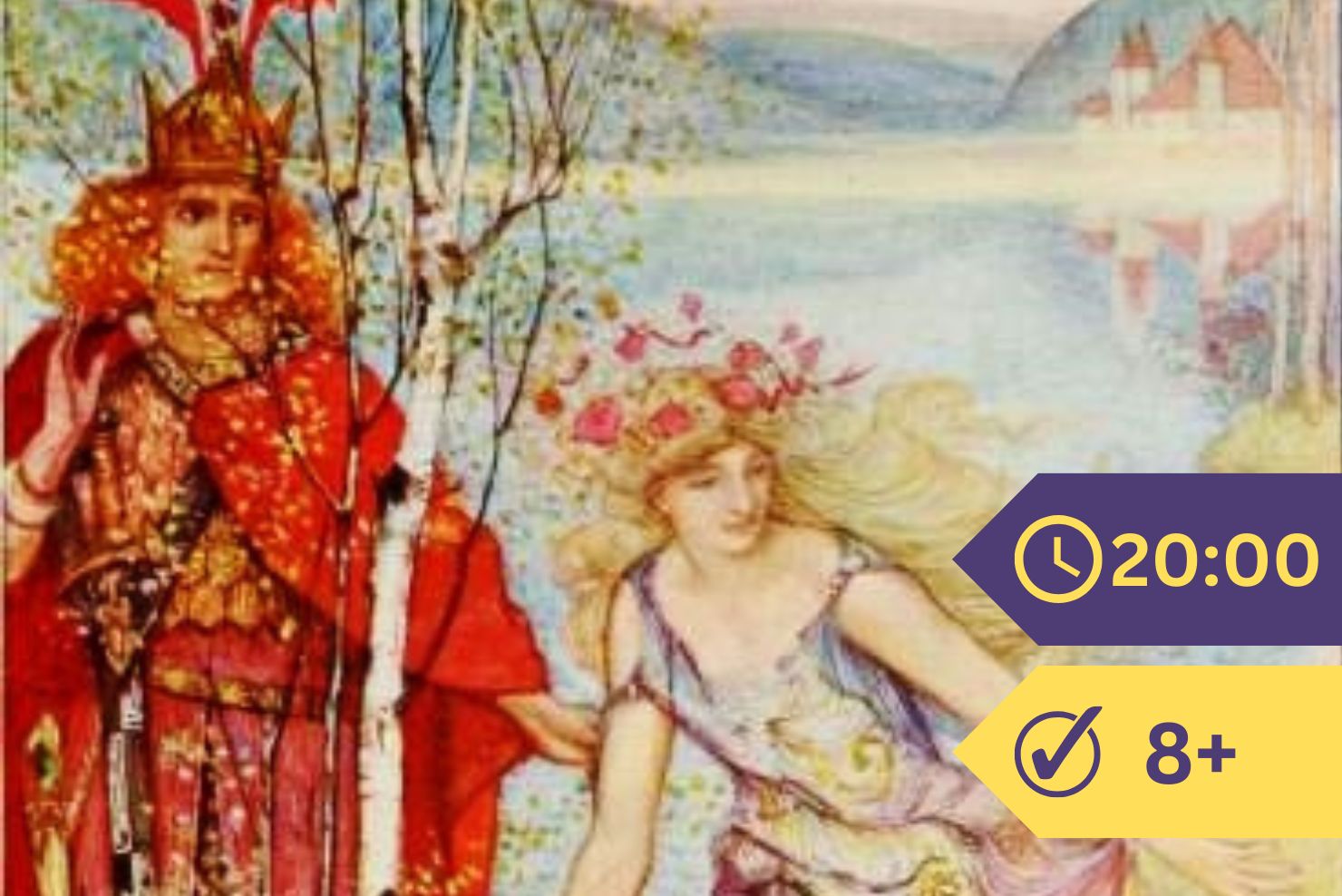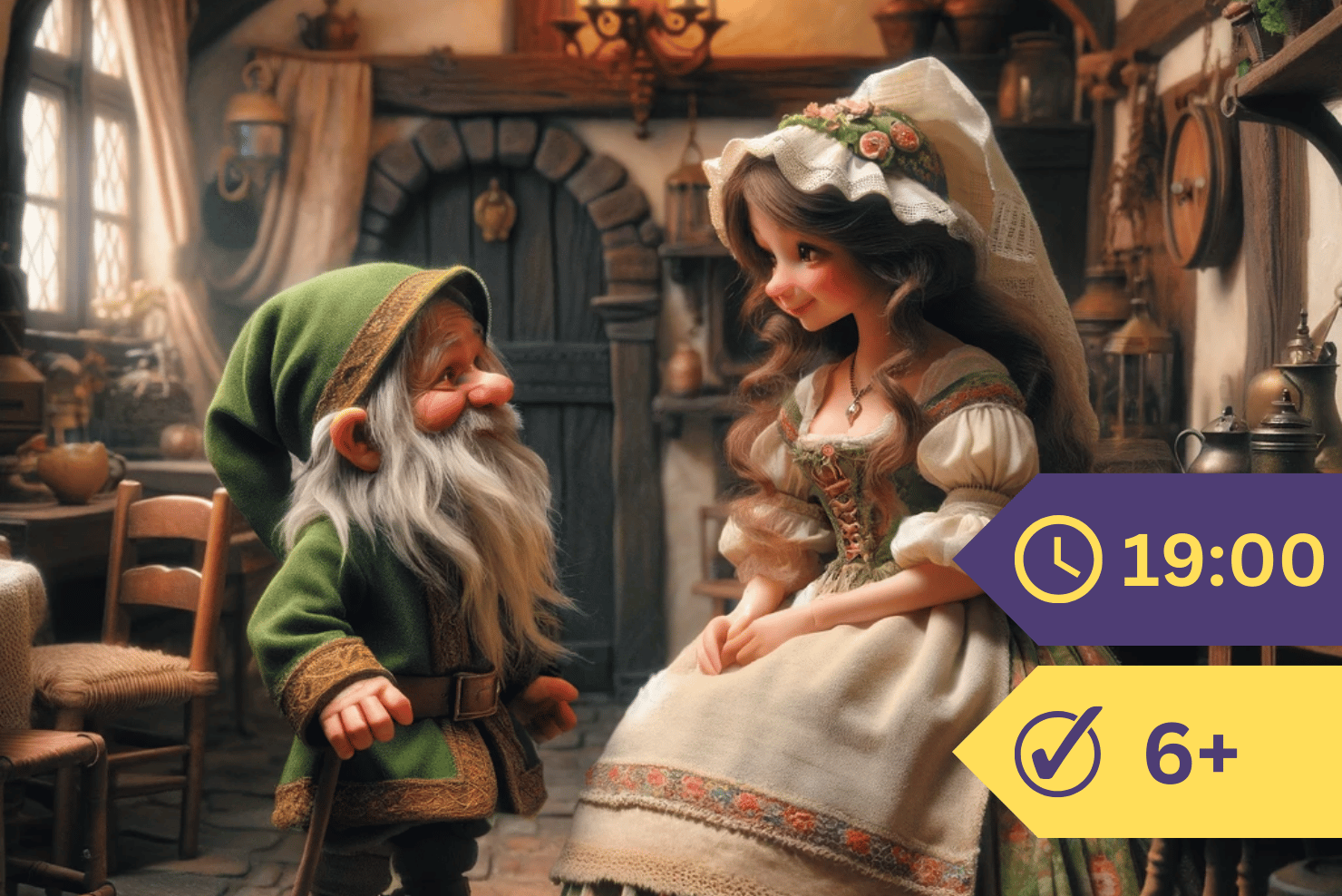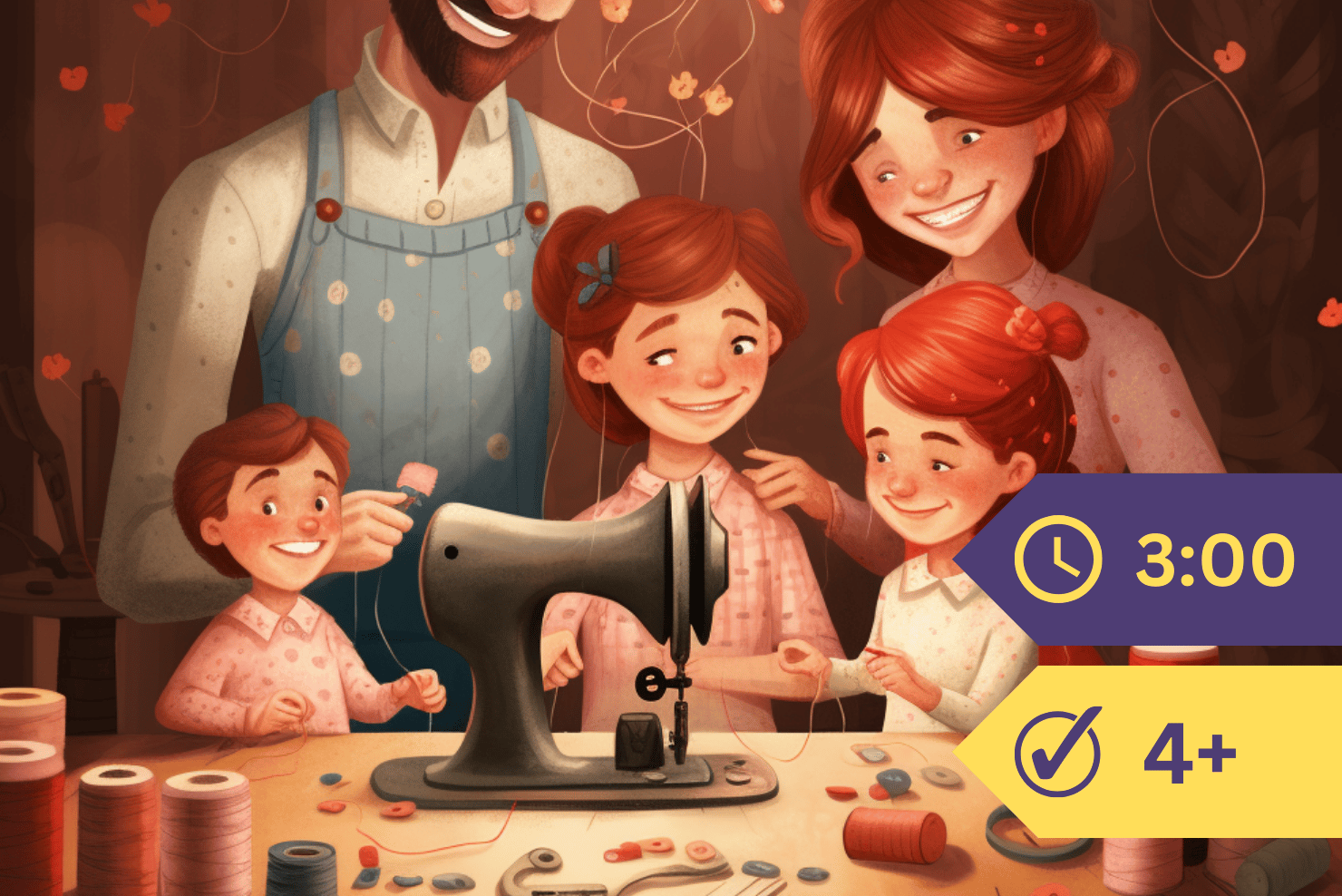“They never will go with you in this world,” declared Mrs. McAllister finally to the distracted grandfather, “unless you give us time to break the news gradually. And above all, when Violet is so ill.”
“Couldn’t I see them?” begged the man, almost like a boy. “I could pretend I was a friend of yours, visiting you, who liked children. I would promise not to tell them until you consented.”
“That might do,” said Dr. McAllister. “If they grew to like you before they knew who you were, it would make things easier, certainly.”
So James Henry Cordyce’s chauffeur was sent for a gold-monogrammed suitcase and his young man to wait upon him, and Irish Mary held up her hands in despair when she learned for whom she must cook.
“Don’t you worry, Mary Bridget Flynn,” said Dr. McAllister with emphasis. “You could cook for the King of England! Just make one of your peach shortcakes for lunch and broil a chicken, and I’ll answer for him.”
When lunch time came J. H. Cordyce saw all his grandchildren except Violet. He smiled with delight when he saw Jess coming down the stairs in her womanly fashion. Henry shook hands with him before he sat down, but he kept glancing at the stranger all through the meal.
“Where have I seen that man before?” he thought.
Mrs. McAllister had given the children’s names clearly when she introduced them—Jess, Benny, and Henry. Henry James, she had added. But she had not added the man’s name.
“She forgot,” thought Jess. “Because she knows him so well, she thinks we do.”
But although nameless, the stranger caught their attention. He told them wonderful stories about a steel rail which held up an entire bridge until the people had time to get off, about his collie dog, about a cucumber in his garden, growing inside of a glass bottle. Henry was interested. Benny was fascinated.
“I’d like to see the cucumber,” said Benny, pausing in the middle of his shortcake.
“Would you, indeed?” said Mr. Cordyce, delighted. “Some day, if Mrs. McAllister is willing, you and I will ride over to my garden and pick it.”
“And we’ll bring it to Violet?” asked Benny, waiting breathlessly for an answer.
“We’ll bring it to Violet,” agreed Mr. Cordyce, resuming his shortcake.
After lunch he went to sleep in the easy-chair in the doctor’s big office. That is, he threw his head back and shut his eyes, and breathed very heavily. Jess went through the room once with ice water, humming, for Violet was better. But the moment she saw the stranger asleep, she stopped her singing abruptly and tiptoed the rest of the way. Then as suddenly she turned around and came back, and very carefully shoved a cushion under the man’s feet. It was so gently done that even if he had been really asleep, he would never have wakened. As it was, he could not resist opening one eye the slightest crack to see the bright chestnut hair as it passed out of sight.
“No,” he thought to himself, “if she really hated me, she would never have done that.”
But the children were very far from hating him. They liked him immensely. And when at last, one day, he was allowed to see Violet, and came softly into her room with a nosegay of fragrant English double violets, for her, they loved him. He won all their hearts when he patted her dark head and told her very simply that he was sorry she had been sick.
It would be hard to say that J. H. Cordyce ever had a favorite grandchild, but certainly his manner with Violet was very gentle. It was clear to every one, even to the anxious nurse, that the stranger was not tiring the sick child. He told her in a pleasant everyday voice about his garden and his greenhouses where the violets came from—about the old Swede gardener who always said he must “vater the wi-lets.”
“I’d love to see him,” said Violet earnestly.
“How long you going to stay here?” Benny piped up.
It was not altogether a polite question, but it was clear to them all that Benny wanted him to stay, so they all laughed.
“As long as they’ll let me, my boy,” answered the stranger quietly. Then he left the sick room, for he knew he should not stay long.
But something in the man’s last sentence rang in Henry’s ears. He repeated it over and over in his mind, trying to remember where he had heard that same voice say “my boy.” He made an excuse to work in the flower beds along the veranda, in order to glance occasionally at the man’s face, as he sat under a tree reading.
Often Henry thought he had caught hold of his truant memory. Then the man turned his head and he lost it again altogether. But suddenly it came to him, as the man smiled over his book—it was the man who had shaken hands with him on the day of the race! And he had said, “I like your spirit, my boy.” That was it.
Henry sat down out of sight and weeded geraniums for a few moments. It is a wonder he did not pull up geraniums instead of weeds, his mind was so far away.
“I didn’t remember him at first, because I was so jolly excited when he shook hands with me,” decided Henry. Then he was apparently thunderstruck afresh. He sat with his weeder on his knee and his mouth open. “He’s the man who passed me the cup with the wings!” He stole another look around the corner, and this satisfied him. “Same man exactly,” he said.
When he had finished the flower bed he thought he heard the young doctor moving in the office. He stuck his head in the open door. The doctor sat at his desk, taking notes from a book.
“Do you know who presented the prizes Field Day?” asked Henry curiously. “Know what his name was?”
“James Cordyce, of the Steel Mills,” replied the doctor carelessly. “J. H. Cordyce—over in Greenfield.”
Dr. McAllister, to all appearances, returned to his notes. His eyes were lowered, at any rate. But for Henry the skies were reeling. He withdrew his head and sat still on the step. That delightful man his grandfather? It was impossible. He was too young, to begin with. Henry expected a white-haired gentleman with a cane and a terrible voice. But all the time, he knew in his soul that it was not only possible, but really true. He recalled the man’s reply to Benny’s direct question—he had said he was going to stay as long as they would let him. Could it be that the man knew them without introducing himself? A perfect torrent of thoughts assailed Henry as he sat crouched on the office steps. It was clear to him now that Mrs. McAllister had failed to mention his name on purpose. It was a wonder Benny hadn’t asked what it was, long before this. He noticed that the man was getting out of his chair under the trees.
“It’s now or never,” thought Henry. “I’ve got to know!”
He walked eagerly after the man who was going toward the garden with his back turned. Henry easily caught up with him, breathing with difficulty. The man turned around.
“Are you James Henry Cordyce of Greenfield?” panted Henry.
“I am, my boy,” returned the man with a long look. “Does that question of yours mean that you know that I know that you are Henry James Cordyce?”
“Yes,” said Henry, simply.
The man’s eyes filled with tears, and J. H. Cordyce of the Steel Mills shook hands for the third time with his grandson, H. J. Cordyce of the Home for Tramps.
